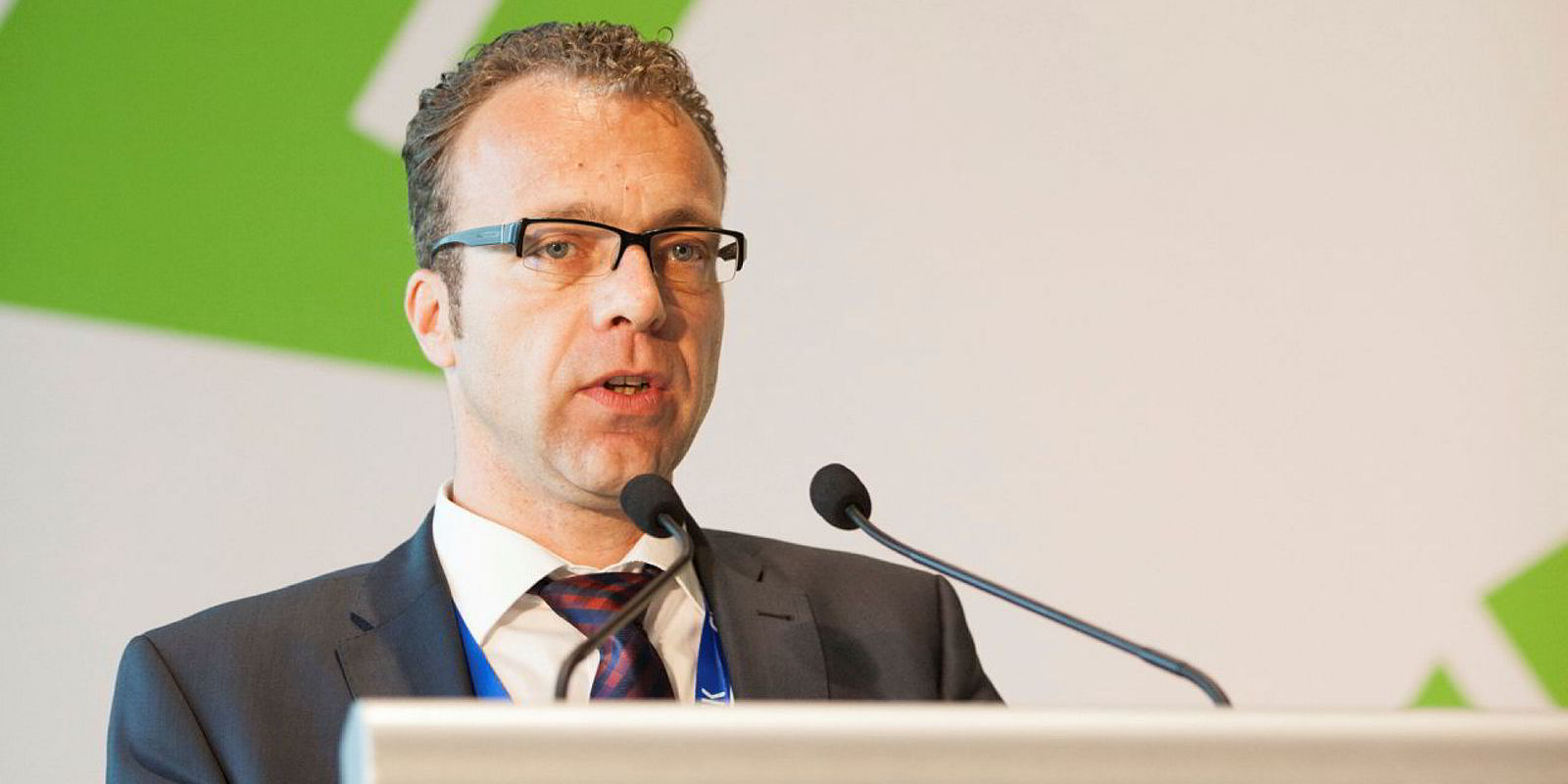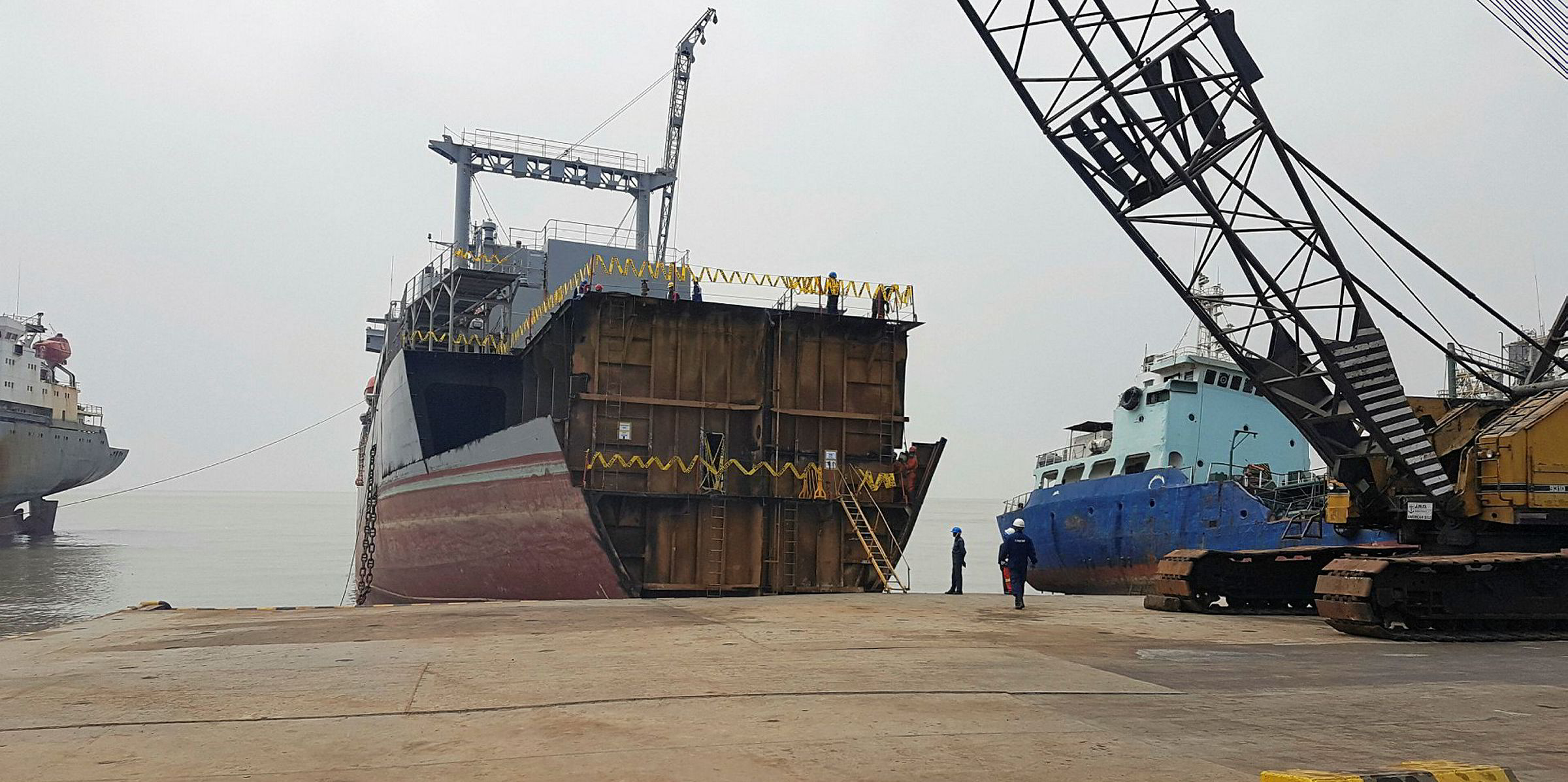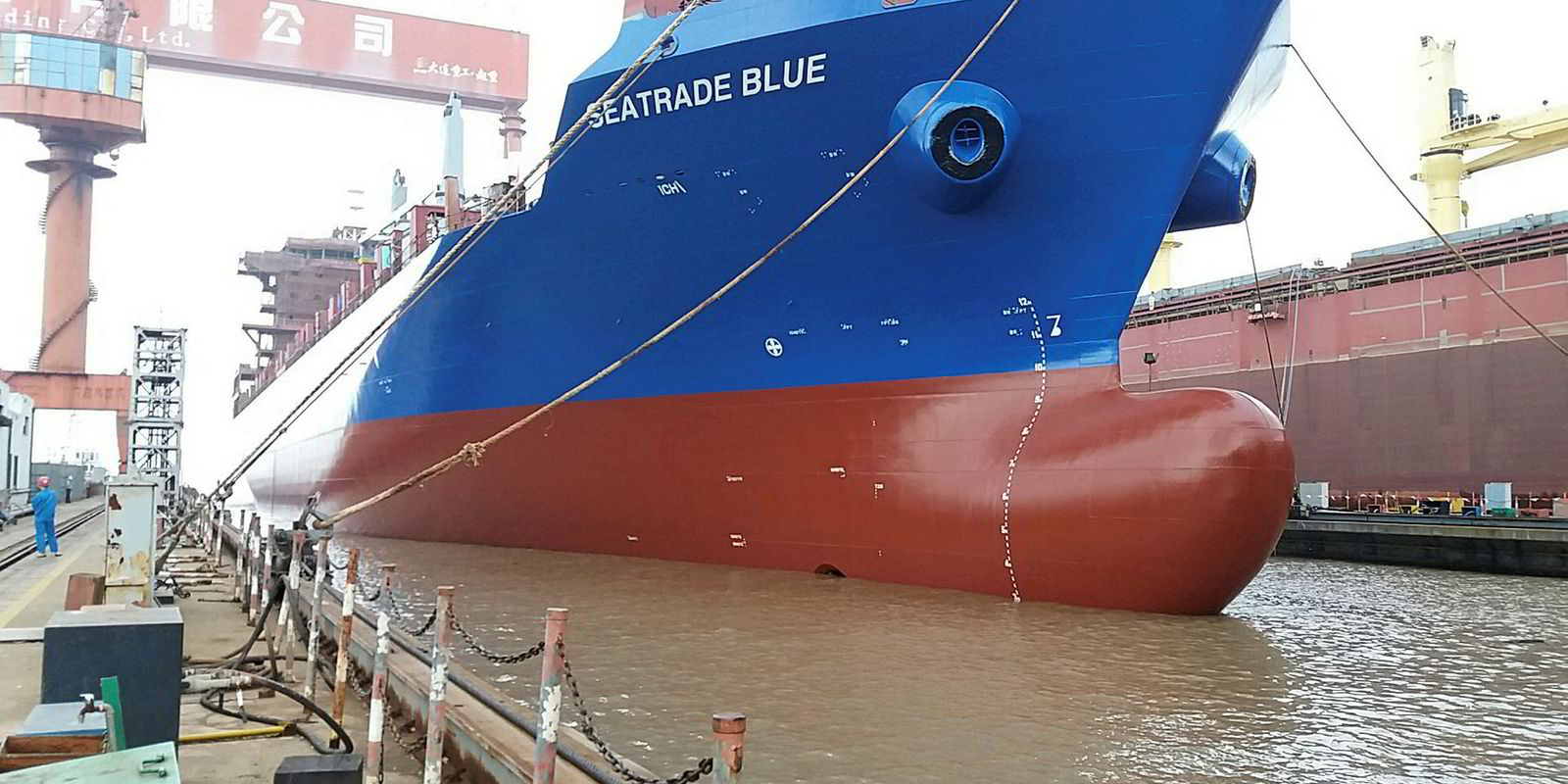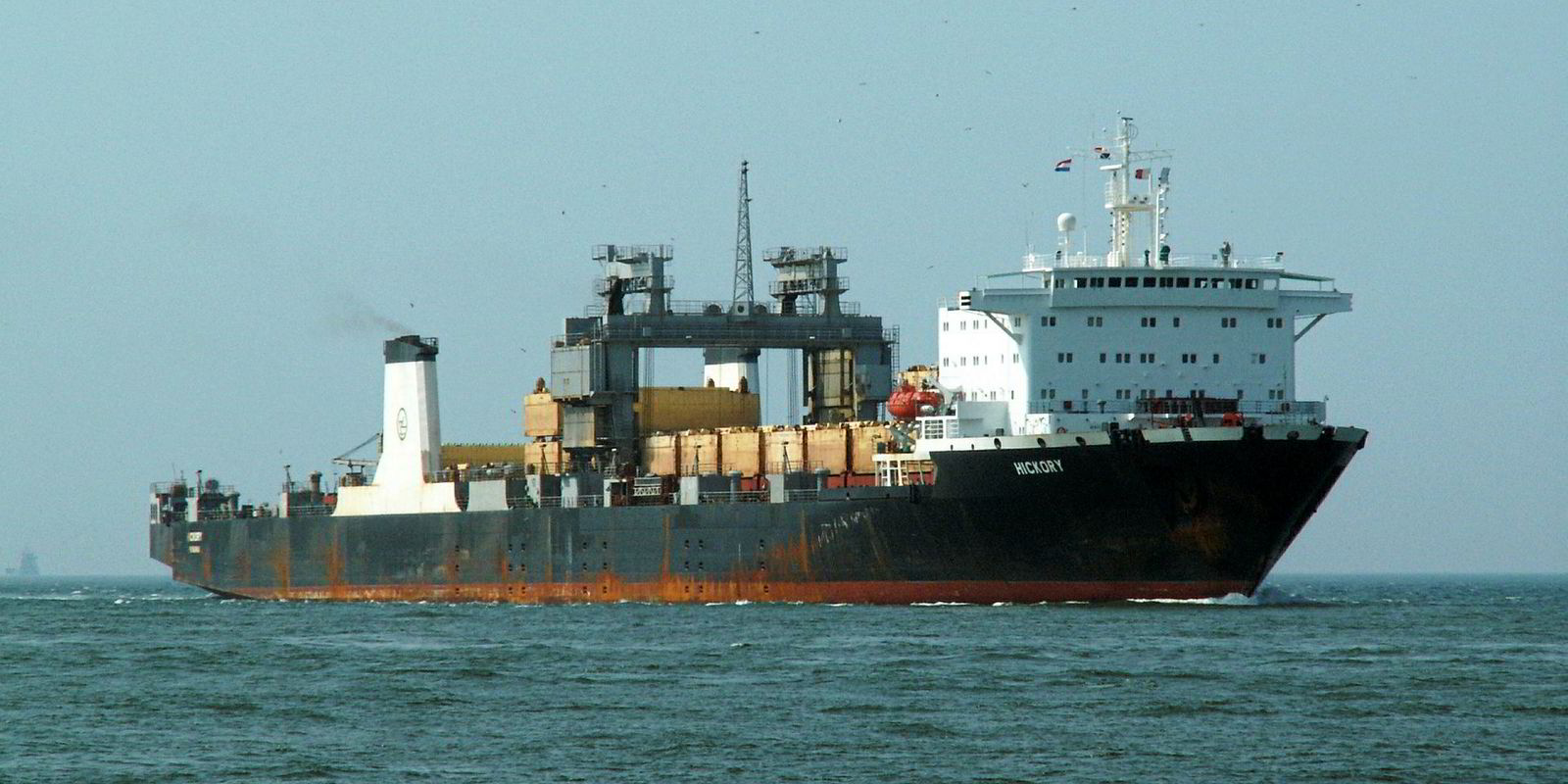A New Zealand navy tanker has become the first vessel to be demolished in India in compliance with the exacting safety and environmental standards of the Basel Convention.
The job is significant in that it raises the possibility that Indian yards could yet be used by European shipowners to legally export ships for demolition by complying with the Basel Convention on the Transboundary Movements of Hazardous Wastes and their Disposal.
Dutch reefer operator SeaTrade was found guilty in March of selling ships for demolition from Europe to South Asia, and Norway’s Eide Group is under investigation for breaching European waste export regulation.
Now a number of European owners are understood to be initiating projects for the legal demolition of ships in India by applying the Basel Convention.
Improving market
India is becoming a critical country for green ship demolition. It has abundant capacity, and higher environmental standards can be achieved at a cheaper price to owners compared with Europe.
German technical company GSR Services was chosen to manage the demolition of the 9,537-dwt navy tanker Endeavour (built 1988) in line with the Basel Convention.
In cooperation with the New Zealand Defence Force (NZDF), the JRD Industries shipyard in Alang, northwest India, was chosen. JRD has a statement of compliance with the Hong Kong Convention for the Safe and Environmentally Sound Recycling of Ships issued by classification society ClassNK. A plan drawn up to demolish the vessel in line with the Basel Convention was approved by the New Zealand Environmental Protection Authority.
A key element of the Basel Convention is that the equivalent standards in the exporting country must be applied to the vessel being sent for recycling.

The reporting requirements also included full tracking of all materials leaving the yard, and the demolition job was fully audited by the NZDF and GSR.
There were no reported safety issues during the demolition. GSR chief executive Henning Gramann told TradeWinds: “Through JRD’s safety system and management, no accidents occurred during the process and a short halting of recycling was only ordered twice due to minor safety issues.”
The whole recycling process was also recorded by a time-lapse camera, which was fitted to monitor possible pollution of the intertidal zone where the initial cutting of the vessel occurs.
NGO questions approach
Environmental group NGO Shipbreaking Platform has complained that it does not believe ships can be taken apart in the intertidal zone without polluting the surrounding beach and seas.
Protecting the intertidal zone became a key element of achieving compliance with Basel. A slag collection system was developed to make sure not even paint chips fell into the intertidal zone as hull blocks were dismantled.
Gramann says more than 98.8% of the waste from the Endeavour was recycled or reused. Only 1.2% of the vessel had to be sent to landfill.
Every effort was used to reuse rather than re-smelt waste metal, which is estimated to have saved 250,000 cubic metres of CO2 emissions and 1,000 tonnes of waste.
Gramann said: “All parties involved have concluded that responsible ship recycling and Basel compliance is achievable with a bit of extra effort, and it is more sustainable in India than in other regions. Additionally, it comes at a very low cost.”
The European Commission is conducting a site inspection of two Indian yards, Shree Ram and Priya Blue, this month with a view to including them on a list of yards approved to dismantle European flag ships. JRD has also applied for EC approval.





